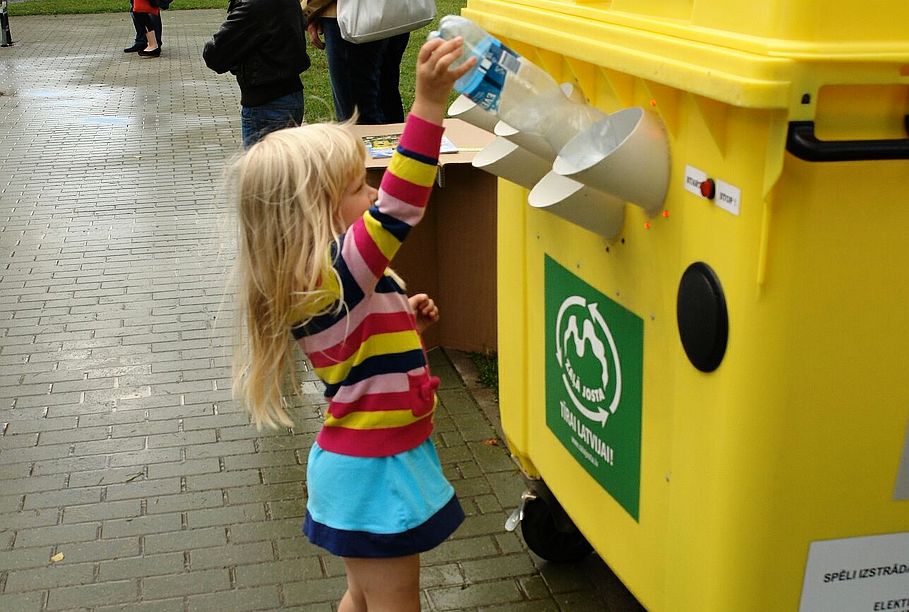The sorting of garbage is hardly considered an innovation in waste management anymore, as ever new and interesting ways are being developed to promote the practice, both at the household, corporate, local and state government levels. Yet Latvia remains among the worst EU member-states for recycling, despite two-thirds of the population claiming in polls to be prepared to separate their trash.
According to Eurostat data from 2012, Latvia still puts between 80-90% of its garbage into landfills, whereas the average EU levels are below 60%. Latvia has resolved to reach a 50% recycling level for its nationally generated trash-piles by the year 2020.
An average resident of Latvia generates around 300 kilograms of waste annually, which adds up to between 600-700 thousand tonnes of trash per year for the entire nation. About 30% of all that rubbish is comprised of used packaging material, which could just as well be comfortably sorted in more publically available containers.
The new measure – modern recycling containers that actually thank residents out loud for taking out their sorted garbage and ‘feeding’ the receptacles – was launched in light of complaints about the general lack of recycling dumpsters available around town.
Maris Simanovics of waste management firm Eco Baltia explained that “the system is developing very slowly and not always are local governments responsive” to the critical need for more containers.
“We started the talking trash-bin campaign to address residents directly and attract the attention of passersby to the fact that the containers are actually ‘hungry’ for recyclable garbage and would be glad to ‘eat’ that bottle instead of seeing it go off into a landfill somewhere,” Simanovics said.
“There’s a sensor that measures someone’s radiated body-heat and a second one that’s built-in inside the bin and senses when a plastic or glass bottle lands there. Then it triggers and says ‘thanks, how tasty – give me more’”, another campaign staff-member Martins Dabolins explained the technical side of the campaign.
Meanwhile, daily newspaper Diena reported Friday that the deposit-return system for recycled beverage bottles would likely not go into effect as hoped by January 1, as Saeima Thursday struck the proposed bill from its agenda for being ‘economically infeasible.’
Beer and beverage packaging Association leader Inara Sure pointed out that by failing to implement the system Latvia would be unable to fulfil certain EU requirements and producers would be facing future fines.
























